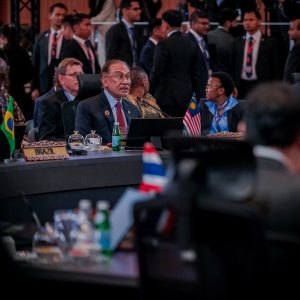Danish Muslims demand broader action as government weighs legal steps
COPENHAGEN, Denmark (AA): From discriminatory legislation to actual acts of aggression and violence, the Muslim community in Denmark has repeatedly raised concerns over a growing wave of Islamophobia in the country.
With the latest furor over the attacks on the Quran, community leaders are hoping for more systematic change, rather than cosmetic measures focusing on a singular area.
“Danish Muslims are used to these incidents … In fact, this whole phenomenon started from Denmark,” said Urfan Zahoor, spokesperson for the Danish Muslim Union (DMU), the largest umbrella group for Muslim associations and mosques in the country.
“For years, we have been trying to convince politicians that these acts shouldn’t be a part of democratic society, but somehow we didn’t succeed.”
On the argument over freedom of expression, he asserted that every society and country “has their own boundary.”
“Some don’t want to talk about the king or the queen, or allow Holocaust denials, or the burning of flags of foreign countries,” he said in a video interview with Anadolu.
“Every country decides for themselves what is good for their society. We want to convince people that the Danish society we are a part of should develop into one where no minority groups are targeted.”
‘Muslims want a long-lasting solution’
An estimated 5% of Denmark’s population of some 6 million is Muslim, but the country ranks among the most vulnerable for Muslims, along with France and Austria, according to the European Islamophobia Report 2022.
Asif Manzoor Khan, a senior scientist at Aarhus University and a prominent figure in the Danish Muslim community, said government interventions to stop such incidents would not be enough to address the larger issue of Islamophobia.
“This is not the first time that these incidents are happening. These things were happening, but the government was silent. At least they have come forward now,” he told Anadolu.
He stressed that the Muslim community gives full respect to the Danish state, government and people, and expects that to be reciprocated.
“There should be the same respect toward the Muslim community that lives in this country, and for whom the Quran is the supreme book,” he added.
Zahoor, the DMU official, said Denmark’s Muslims are not looking for “any surgical strikes,” referring to the idea of just banning attacks on holy books.
“We don’t want to find a loophole in the existing laws. We want to look further, to be proactive, try to find a wider solution, and not just because of the international pressure that has built up,” he said.
The community has mixed feelings about the growing diplomatic pressure on Denmark and the way that is forcing the government’s hand, he said.
“We want the change to come from within, and we want it to be long-lasting,” said Zahoor.
Measures like banning the burning of holy books near diplomatic buildings “will be very much short-sighted,” he continued, urging the government to explore ways to stop acts that are “demeaning” for members of Danish society.
“We want broader measures that aim for a long-lasting solution,” he reiterated.









